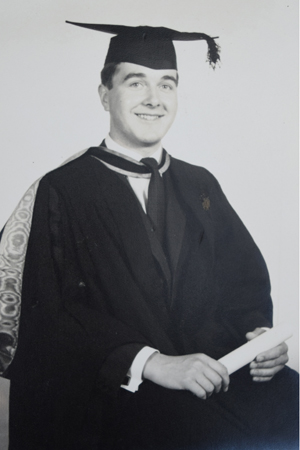
Dr John Higginbotham (BSc Chemistry, 1966; PhD Chemistry, 1969)
OLD JOE: How has the degree course changed?
John: There was a strong emphasis on practical work in my time. We had a daily three-hour lecture, as well as four hours in the laboratory behind the Hills Building on Monday, Wednesday and Thursday afternoons and Saturday morning. And we would have the entire year group in the same laboratory – so about 120 in my time.
My degree set me up for my working career with Tate & Lyle, where I discovered a naturally intense sweetener in West Africa and created 12 patents in other fields. But what I didn’t realise when I started at the University was that I was required to study physics and mathematics in my first year!
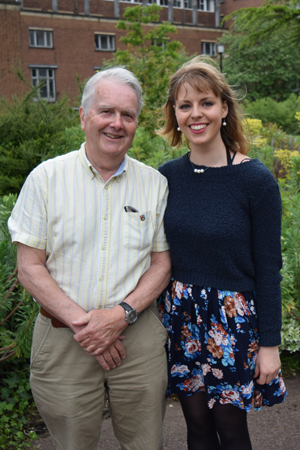
Alice Sayers (Third year, BSc Chemistry)
OLD JOE: How has the degree course changed?
ALICE: There’s still quite a lot of practical work – we have eight hours a week and we’re split into seven groups. But we also have a workshop before our lectures, as well as ‘pre-labs’ completed online before the actual laboratory sessions. We’re based in the dedicated chemistry buildings, and the new Collaborative Teaching Laboratory will improve the work space when it opens.
We still have mathematics lessons in our first year, but they are specialised modules for chemistry, and there is a Physical Chemistry core module that includes some physics concepts vital to chemistry.
Pictured with Dr. John Higginbotham
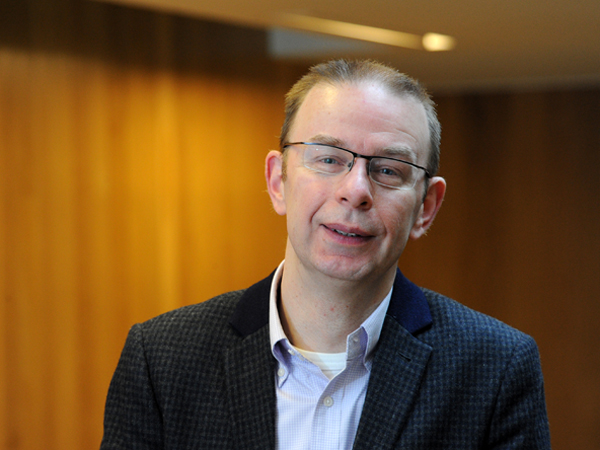
Paul Rodmell (BMus Music, 1988; PhD Music, 1995)
OLD JOE: What was your favourite module?
PAUL: I really enjoyed the Mensural Notation course. It was about making a transcription of music from early manuscript sources, typically a 15th or 16th Century manuscript that uses notation that most people wouldn’t be familiar with now, and making an edition which is usable by present day musicians. I had to learn quite a lot of rules as notation conventions were different and I had to know some Latin, 15th century French and be able to read manuscripts and handwriting of that era. All my work was written out by hand as this was before computerized notation programs existed.It was easy to make a mistake without noticing- and if you did you sometimes had to write out the whole thing again.
OLD JOE: What are your favourite memories of being on campus?
PAUL: On a nice day I used to love sitting on the lawn outside the Arts building and spending time in the Music library. When I was a student you could buy a cup of tea made by hand in the Mason Lounge for 14 pence. I'll always remember performing the Britten War Requiem in the Great Hall, mainly because I was playing one bassoon part and the bassoonist in the other orchestra didn’t show up so I had to alternate between my own part and sight reading the other part. I also enjoyed time at the Gun Barrels Pub.
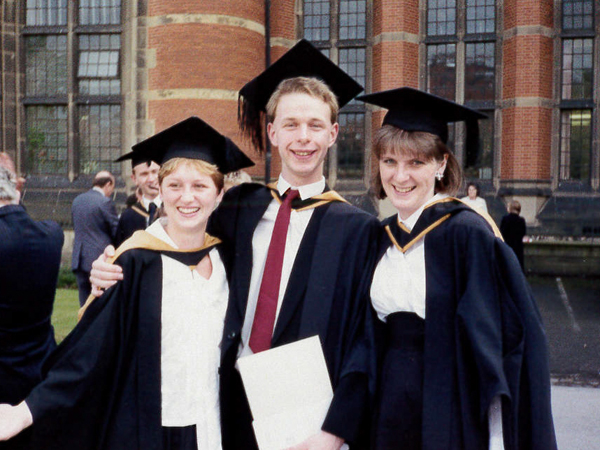
Paul Rodmell: extra memories
OLD JOE: What was your favourite module?
PAUL: I really enjoyed the Mensural Notation course. It was about taking a transcription of music from early manuscript sources, typically a 15th or 16th Century manuscript that uses lots of notations that most people wouldn’t be familiar with now, and making an edition which is usable by present day musicians. I had to learn quite a lot of rules as notation conventions were different and I had to know some Latin, 15th century French and be able to read manuscript of that era and handwriting. This was before computerized notation programs existed. If you made a mistake you had to start over which was very annoying if you got it wrong.
OLD JOE: What are your favourite memories of being on campus?
On a nice day I used to love sitting on the lawn outside of the Arts building and spending time in the Music library. When I was a student you could buy a cup of tea made by hand in the Mason Lounge for 14 pence. I'll always remember doing the Britain war requiem in the Great Hall, mainly because I was playing one bassoon part and the bassoonist in the other orchestra didn’t show up so I had to play my own part and also sight read the other part. I also enjoyed time at the Gun Barrels Pub.
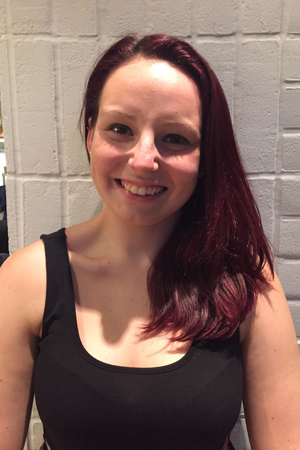
Lee Chapman (BA Music, 2016)
OLD JOE: Many elements of the degree have changed since Paul graduated, what has stayed the same?
I went to the Conservatoire in my first year to study performance modules for my degree; it was incredible to have such a link to professional musicians.
OLD JOE: What are your favourite memories?
Joining the Music Society was the best thing I did at the University. It was a great way to meet new people and escape from your degree, while still being involved in the activity you loved.
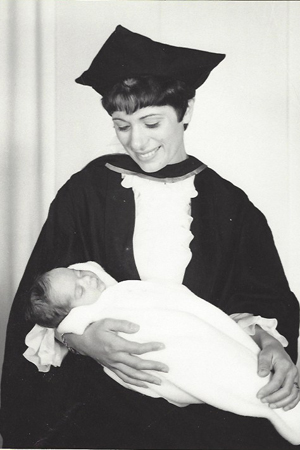
Barbara Alexander (MBChB Medicine, 1968)
OLD JOE: How has technology helped medical students?
For our anatomy lessons, the class would go into the dissection room, which had rows of tables with the cadavers ready for the first morning we arrived. We were divided up into small groups, and each day dissected a specific part. There was always a strong smell of formaldehyde but even so, only one student dropped out of my degree class.
OLD JOE: How about equipment?
It would have been considered ‘state-of-the-art’ for the time, but would now raise some eyebrows. We each had a dissecting kit, and then our own stethoscope. It was recommended that students had a replica skeleton and for my first year, while in residence in Winterbourne, I kept the skeleton in a box under the bed.
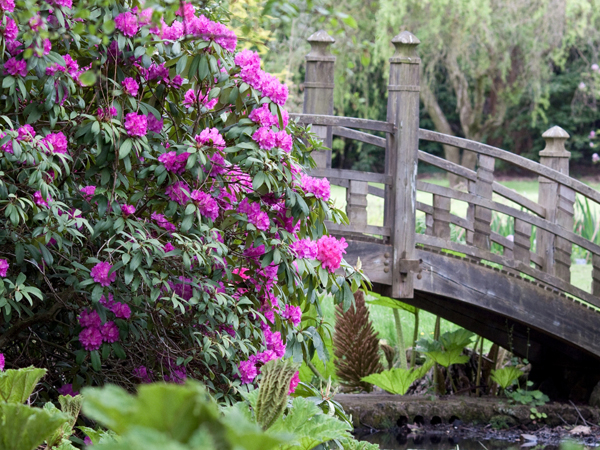
Barbara Alexander: extra memories
OLD JOE: What are your favourite memories?
I enjoyed the level of camaraderie that developed with my circle of medical school friends, probably due to the initial joint experience in the Dissecting Room. The other is the moment at graduation when I stood in the Old Joe quadrangle in cap and gown with our four-week-old son in my arms (photo attached). I should explain that our eldest son arrived six weeks prematurely in the middle of finals, between the written and oral exams. He was born at the Queen Elizabeth Hospital, and it is amusing to recall that the Professor of Surgery came up to my bedside the morning after he was delivered- which was when I should have been having my Viva- to advise me that he had rearranged it so that he would be giving me mine last a few days later.
OLD JOE: Where did you live?
During my first year at the Medical School I lived in Winterbourne. On our last visit to the University, we walked around the gardens and felt that the building was essentially unchanged in appearance since the 1960s. However back then it was a women's only residence, with men being allowed into the common room. It was a friendly environment with several women sharing one room. The students living at Winterbourne were envied as we were on campus.
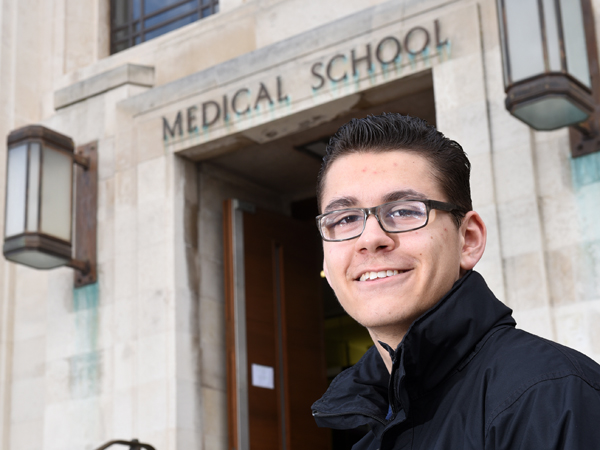
Jamie Nicholson (Second year, MBChB Medicine)
OLD JOE: How has technology helped medical students?
JAMIE: Well, we have anatomage tables for dissection lessons. They produce a virtual human body that you can take slices through, or look at individual organs. Anatomy is taught in special rooms with plastic corpses, and we have a prosection performed for us.
OLD JOE: How about equipment?
These days we have dummies on which we can practice basic life support – that is a virtual body with technology that helps us to know how to perform the procedure properly.